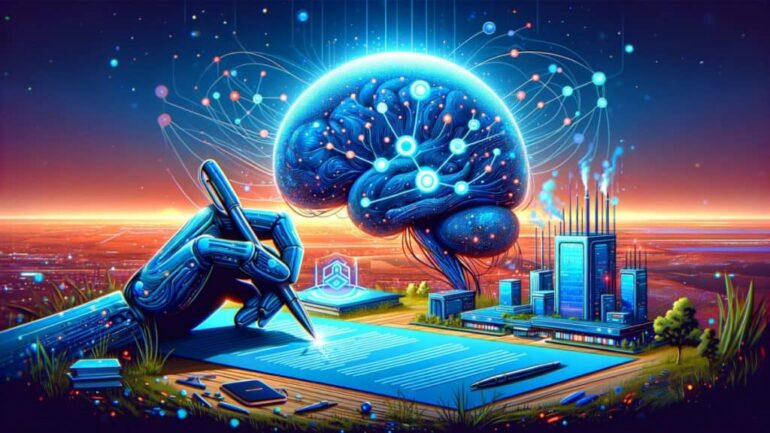TL;DR:
- Shen Yang, a Beijing university professor, won the 2nd prize in the 5th Jiangsu Popular Science and Science Fiction Competition with an AI-generated sci-fi novel called “The Land of Machine Memories.”
- The novel resulted from the collaboration of human creativity and AI, using 66 prompts to create a “Kafkaesque” narrative.
- Judge Fu Changyi recognized the novel’s potential and kept the author’s identity a secret during the competition.
- The novel follows the metaverse adventurer Li Xiao on a quest to recover lost memories.
- Despite the win, some judges, like Xiao Xinghan, raised concerns about AI-generated literature’s emotional depth and its impact on human-authored works.
- Judges agreed that the novel would need substantial revisions for publication, as AI-generated text differs from human creativity.
Main AI News:
In a remarkable turn of events, Shen Yang, a distinguished professor from a prominent Beijing University’s School of Journalism and Communication, astounded the literary world by clinching an accolade with an AI-generated science fiction novel. This groundbreaking Chinese-language work, titled “The Land of Machine Memories,” secured the second prize at the esteemed 5th Jiangsu Popular Science and Science Fiction Competition.
This extraordinary achievement was accomplished through the collaboration of human ingenuity and artificial intelligence. Shen Yang’s masterpiece, comprising over 40,000 meticulously crafted characters, sprang forth from the convergence of 66 prompts that imbued it with a distinctly “Kafkaesque” narrative style. The emergence of this narrative gem was nothing short of spectacular, and its journey to acclaim was marked by a fascinating twist.
It was the discerning eye of Judge Fu Changyi, the distinguished head of the Science Fiction Committee of the Jiangsu Provincial Association for Popular Science Writers, who recognized the novel’s potential. In a bid to ascertain its true worth, Judge Fu kept the author’s identity shrouded in secrecy from his fellow adjudicators. The decision to include this AI-generated work in the competition was a daring experiment, as the contest’s rules did not explicitly prohibit such entries.
“The Land of Machine Memory” introduces readers to the metaverse adventurer Li Xiao, who is on a quest to recover the lost memories of her life as a neural engineer in the real world. Shen Yang submitted his creation under the cloak of a pseudonym, distinguishing himself as the sole contestant to do so. The daring move paid off, with three out of six judges casting their votes in favor of this literary marvel, securing it a well-deserved second prize.
In a fiercely competitive field, where nearly 200 entries vied for recognition, “The Land of Machine Memories” stood out as an extraordinary testament to the potential of artificial intelligence in the realm of literature. Remarkably, every facet of this competition entry, from the novel’s conceptual outline to its captivating illustrations, was meticulously generated by AI. Even Shen’s pseudonym, @SiliconZen, was crafted by the very machine that breathed life into his literary creation.
However, not everyone was won over by the allure of AI-generated literature. Xiao Xinghan, a respected science fiction writer and one of the competition’s judges, declined to endorse “The Land of Machine Memories.” He argued that the work, though technically proficient, lacked the emotional depth and human touch that define great literature. Xiao’s apprehensions extend to the broader implications of AI in the literary world, wondering whether this surge of AI-generated content might ultimately overshadow the works of human authors.
Despite its victory, the consensus among the judges was clear: “The Land of Machine Memories” would require substantial revisions before it could be considered for publication. As Judge Fu aptly pointed out, AI-generated text still bears distinct differences from the creations of human authors. While this event marks a watershed moment in the intersection of AI and literature, it remains abundantly clear that the essence of human creativity and emotion cannot be fully replicated by machines.
Conclusion:
The success of “The Land of Machine Memories” in winning a prestigious literary prize in China highlights the potential of AI in literature. However, concerns about its emotional depth and the potential overshadowing of human-authored works indicate that AI-generated content will require further refinement before becoming a dominant force in the literary market. This event marks a significant moment in the intersection of AI and literature but emphasizes that human creativity and emotion remain irreplaceable by machines.

